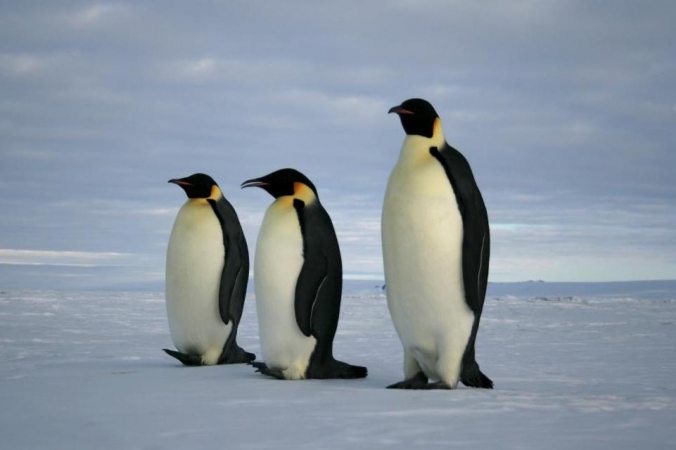
April 25 (UPI) -- The world's second largest emperor penguin colony is no more after residents of the Halley Bay colony in the Weddell Sea failed to raise chicks for three straight years.
Scientists with the British Antarctic Survey confirmed the "catastrophic breeding failure" after studying high-resolution satellite imagery collected over the last few years.
Prior to the catastrophe, the colony hosted a penguin population of between 14,000 and 25,000. During especially crowded years, the colony accounted for nearly 10 percent of the global emperor penguin population.
To breed and raise chicks, emperor penguins need sea ice. For decades, sea ice conditions in Antarctica's Halley Bay were stable. In 2016, stormy weather broke apart the sea ice in October, earlier than usual. The season's chicks all perished.
Sea ice losses prevented the penguins from successfully raising their chicks again in 2017 and 2018. The latest analysis -- detailed this week in the Antarctic Science -- suggests the colony is now all but gone.
"These images have clearly shown the catastrophic breeding failure at this site over the last three years," lead study author Peter Fretwell, a remote sensing specialist at BAS, said in a news release. "Our specialized satellite image analysis can detect individuals and penguin huddles, so we can estimate the population based on the known density of the groups to give reliable estimate of colony size."
Satellite images showed the nearby Dawson Lambton colony has ballooned in population, suggesting many of the adults from Halley Bay have relocated. Until now, scientists weren't certain whether emperor penguins would migrate in response to changing environmental conditions.
"It is impossible to say whether the changes in sea-ice conditions at Halley Bay are specifically related to climate change, but such a complete failure to breed successfully is unprecedented at this site," said BAS penguin expert Phil Trathan.
However, previous models have predicted a warming climate will shrink the amount of sea ice available to emperor penguins, resulting in population declines.

